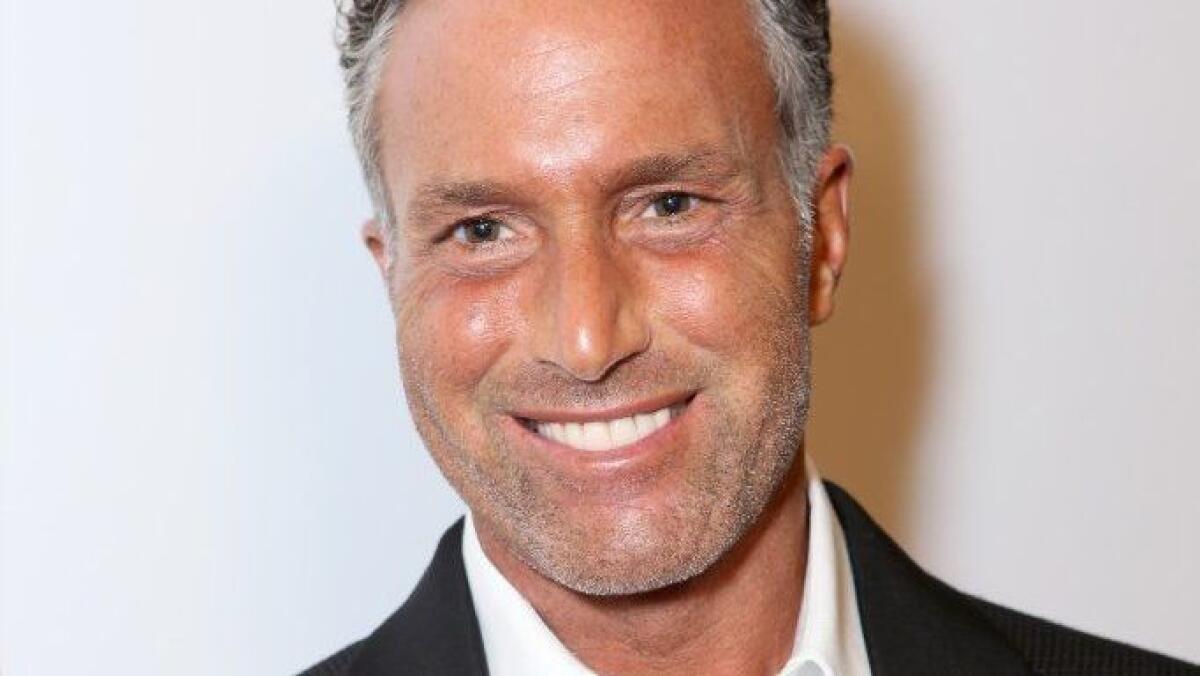Column: He was convicted in a historic healthcare fraud. Trump is letting him walk free

President Trump’s tsunami of pardons and commutations has been such an effective guide to the most loathsome individuals in today’s America that it’s hard to know where to begin in pulling out case histories.
But here’s a standout: It’s the case of Philip Esformes, who was convicted last year in what federal prosecutors termed “the largest healthcare fraud scheme ever charged by the Department of Justice.”
Esformes’ crimes involved $1.3 billion in fraudulent claims to Medicare and Medicaid for services at his network of nursing and assisted living facilities in Florida. He was sentenced to 20 years in prison on 20 felony counts. Noting that the charges on which he was found guilty carried combined maximum sentences of 255 years, prosecutors had asked for 30 years.
This was not one criminal act, but hundreds of choices to break the law, even thousands, for more than a decade.
— Federal prosecutors, U.S.A. v Esformes
Esformes, 52, served a bit less than 4 1/2 years. Now, thanks to Trump, he’s a free man.
It’s fair to say that the Esformes case doesn’t involve crimes as shocking as those of some recipients of Trump pardons. There are the four mercenaries working for Blackwater who were convicted in 2014 of an unprovoked attack in Baghdad, killing 14 Iraqi civilians and wounding 17.
They were sentenced in 2019 to terms ranging from 12 years and seven months up to life in prison. Blackwater, their employer, was founded by Trump supporter Erik Prince, brother of Betsy DeVos, Trump’s Education secretary.
Nor does it involve assaults on the norms of government as striking as those of former Trump aides Michael Flynn and Roger Stone, who had been convicted in relation to the Mueller investigation of Trump’s 2016 presidential campaign.
Coming as it does in the midst of a pandemic, however, the Esformes clemency underscores all the inequities and dysfunctions of the American healthcare system, which Esformes exploited for massive personal gain.
Trump didn’t pardon Esformes but commuted his 20-year sentence to time served. His conviction stands, as does the requirement that he pay whatever is left of $5.5 million in restitution that is part of his sentence. The size of the balance couldn’t be learned Monday; Howard Srebnick, his defense attorney, didn’t respond to my requests for comment.
Trump could have upheld the example set by Esformes’ sentence, which presented the prospect that he would die in prison. Instead, he set a negative example, showing that one can get away with the harshest consequences for one’s misdeeds if one has access to money and high-placed friends. (In this case, a gaggle of former Republican attorneys general.)
The hallmark of the Trump administration is its quest to put exactly the wrong people in charge of agencies and policies.
Of course, Floridians have seen this before, and don’t seem to care. Rick Scott was elected twice as the state’s Republican governor and once (so far) as its U.S. senator, despite the Medicare and Medicaid fraud committed by the healthcare company Columbia/HCA during his tenure as chief executive.
The government charges, to which the company pleaded guilty, resulted in then-record $1.7 billion in fines and penalties. Scott wasn’t charged personally.
Esformes played an indisputable role in the crimes that led to his conviction, however. Let’s take a look.
In announcing his conviction in April 2019, the Department of Justice observed that Esformes’ actions “led to over $800 million in fraudulent health care claims, the largest amount ever charged by the Department of Justice.”
The Department of Justice said that he “cycled patients through his facilities in poor condition where they received inadequate or unnecessary treatment, then improperly billed Medicare and Medicaid.” In one form or another, Esformes’ scheme went on for 18 years, until mid-2016, the department said.
Esformes bribed doctors to admit patients into his facilities, “where they often failed to receive appropriate medical services, or received medically unnecessary services,” the Department of Justice said. He bribed regulators to give him advance notice of surprise inspections.
He personally pocketed scores of millions of dollars, which he spent on a lavish lifestyle that included a luxury automobile and a $360,000 watch. He ended up with a net worth of nearly $80 million, prosecutors said.
He tried to help associates flee the country rather than testify against him (they were already cooperating with the government) and tried to persuade one to commit suicide rather than face trial, according to trial testimony.
The government’s penchant in white-collar-crime cases for charging corporations with wrongdoing, rather than the human beings who make the decisions and pocket the proceeds, is a flaw in our justice system that lets wrongdoers off the hook.
On a side issue, Esformes bribed a basketball coach at the University of Pennsylvania with $300,000 to get his son into the school as a basketball recruit. The son didn’t make the team but did acquire a Penn degree.
In their pre-sentencing memorandum, federal prosecutors described Esformes’ conduct as “pernicious, premeditated, and part of a lifelong pattern of disrespect for the law.... This was not one criminal act, but hundreds of choices to break the law, even thousands, for more than a decade.”
Indeed, Esformes had already reached settlements with the government on two civil cases when he was charged criminally, including one in which he had been accused of committing fraud at the same nursing and assisted living facilities that became central to the criminal case.
The prosecutors’ depiction of a fraudster with a “total lack of remorse” was at odds, unsurprisingly, with the portrait painted by his defense team, which pleaded for a 10-year prison term.
According to them, he was a “humbled and broken man” seeking “a chance at redemption.” He was racked with “contrition, regret, remorse, and acceptance of responsibility,” they told federal Judge Robert N. Scola Jr. of Miami.
Trump’s defeat hasn’t slowed down his scorched-earth attack on American policy
He wasn’t remorseful enough to give up on an appeal, in which his lawyers are asserting that he was the victim of prosecutorial misconduct, including the seizing of material during a search that should have been protected by attorney-client privilege.
An amicus brief supporting the appeal has been filed by former GOP Attys. Gen. John Ashcroft, Edwin Meese, Michael Mukasey and Alberto Gonzalez, along with Kenneth Starr, the independent counsel in the Bill Clinton-Monica Lewinsky scandal.
Scola had considered that claim before trial and ruled that although the evidence was collected improperly and should be suppressed, it didn’t warrant dismissing the indictment. The appeal is pending.
In commuting Esformes’ sentence, Trump swallowed the defense claims. He nodded to the claim of prosecutorial misconduct and even cited the amicus brief of the former attorneys general. He pictured Esformes as a convict “devoted to prayer and repentance and ... in declining health.”
Perhaps Esformes is the changed and ailing individual his lawyers claim. One would probably have to be terminally naive to take their representations at face value. And one would have to be hopelessly insensitive to the scale of Esformes’ wrongdoing over nearly two decades to think that he deserves a break.
For the average American struggling with the high price of healthcare and cognizant of the opportunities that unscrupulous healthcare executives have to exploit our system for their own benefit, this case adds to the injury embodied in Esformes’ thefts the insult of giving him a pass out of jail for them.
More to Read
Inside the business of entertainment
The Wide Shot brings you news, analysis and insights on everything from streaming wars to production — and what it all means for the future.
You may occasionally receive promotional content from the Los Angeles Times.












